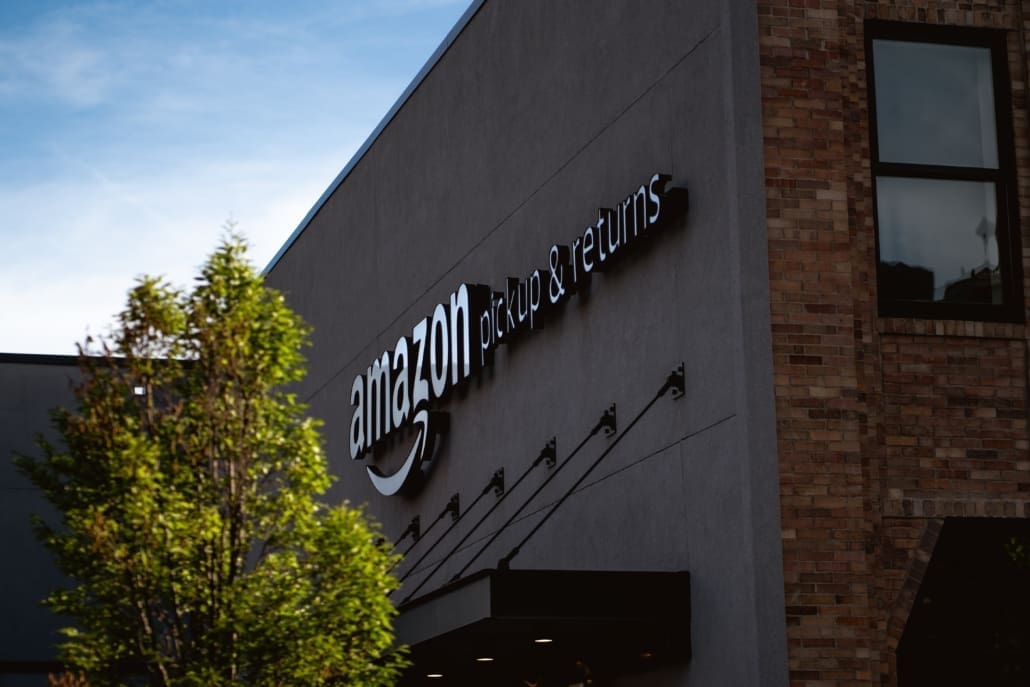Pros and Cons of Putting Your Small Business on Amazon
Ecommerce is booming. Total revenue will reach nearly $4.6 billion in 2021 and grow at an annual rate of 4.6% over the next five years – reaching $5.6 billion by 2025. It’s easy to see why owners of small and medium businesses are asking themselves how they can get a piece of the eCommerce pie. One popular option—the Amazon small business marketplace.
In the first quarter of 2021, 55 percent of the units sold on Amazon were from third-party sellers. For a company with sales of more than $300 billion, that’s more than pocket change. But what are the pros and cons? And is it worth the trouble?
What is Amazon marketplace?
The Amazon marketplace is an eCommerce platform that allows independent vendors and sellers to sell their goods on Amazon. The platform allows Amazon to forego the typical retail model, where it sources materials, then produces and stores each of its products until shipment. Instead, third-party vendors put products on Amazon and take care of the details, while Amazon gets a cut of the profits.

Photo by Bryan Angelo on Unsplash
What are the pros of selling on Amazon as a small business?
There’s no question that Amazon is popular with small businesses: In 2018, nearly three-quarters of Amazon sellers had between one and five employees. And Amazon for small business does have plenty of benefits, like the following.
You can reach a larger audience
One of the biggest benefits of selling products on Amazon is that it can connect you with a wider audience: There are more than 200 million Amazon Prime members worldwide, and that’s not counting site visitors who don’t subscribe to Prime. That’s a huge audience for Amazon small businesses.
Amazon can take a lot of the work off your plate
Getting set up with Amazon marketplace is relatively easy: Just sign up and add products to the catalog. If you want Amazon to do more work for you, you can sign up for Amazon FBA, or Fulfilled by Amazon, which allows you to use Amazon’s warehousing, packaging, shipping, and customer service.
Amazon has tools to help you sell
In addition to Sponsored Ads – which actually make Amazon the third-largest digital advertiser behind only Google and Facebook – Amazon small businesses have access to MerchantWords, a proprietary keyword research tool. It uses actual Amazon data to help you optimize your product names, descriptions, and ads.
Amazon provides technical support
Amazon Seller Central is the platform’s support team for Amazon small businesses. It’s available 24 hours a day, although most sellers will be required to submit a request and wait for a callback. Still, most sellers receive a prompt response and are happy with the support they receive

Photo by Syed Ahmad on Unsplash
What are the cons of selling on Amazon as a small business?
Amazon Marketplace sounds pretty great, right? For many small and medium businesses, it is. But it also has a few drawbacks you should be aware of.
It can be expensive
With charges for selling, referral fees, and Amazon sales tax, the cost of selling on the marketplace can quickly add up. Sellers without a monthly plan will pay 99 cents per item sold, while those with a Professional Plan pay $39.99 per month. If you opt for extra features, like Fulfilled by Amazon, expect to pay more fees. If you are looking to start selling online there are options to secure ecommerce funding.
It can be time consuming
Getting set up with Amazon Marketplace is easy – understanding how to be successful there can be more time-consuming. Diving into the tools Amazon provides and optimizing your product take time. Plus you’ll need to figure out Amazon bookkeeping and accounting, inventory management, and more.
The competition is fierce
There were 1.1 million active Amazon marketplace sellers in the United States alone in 2019. Amazon Marketplace is also incredibly popular with Chinese merchants, some of whom sell products at super-low, factory-direct prices. You’ll even compete with Amazon’s own private label brands. And fake reviews abound on the platform, with competitors using bots to write thousands of five-star reviews at once.
It’s Amazon’s world, you’re just selling in it
Some Amazon small businesses feel they don’t have much power over the selling process. There are reports of Amazon punishing businesses for selling at lower prices on other marketplaces, or pressuring them to sign up for extra services.
Should I use Amazon for my small business?
There’s no one-size-fits-all answer to whether you should sell products on Amazon. Certain categories, like personal care, beauty, and home goods, seem to have greater success on the platform. Businesses with high margins, who can afford to give Amazon its cut, can also do well. However, success with Amazon for small business depends more on your ability to figure out what works for you than on the type of business.
xendoo can help dive into your books and help you make a sound decision on whether to sell on Amazon Marketplace. If you’re already a seller, we can ensure your books are in order – allowing you more time to focus on selling.





